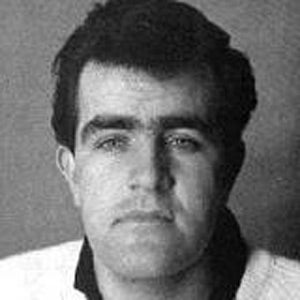Ian Stewart: the sixth Rolling Stone
Ian Stewart rarely allowed in the public eye. Now, belatedly, tribute is to be paid, says John Walsh

Ian Stewart was a hulking Scot with a huge chin and magic fingers. A musical prodigy from the age of six, he was the best boogie-woogie pianist of his day, and one of the great Nearly Men of rock'n'roll history.
He was 23 when he saw an advertisement in Jazz News on 2 May 1962, inviting musicians to join a rhythm'n'blues group. Stewart found himself auditioning with a blond guitarist called Brian Jones. They clicked, and decided to form a band. Days later, they were joined by a singer, Mick Jagger, and a lean-faced guitarist called Keith. With Dick Taylor and Mick Avory on bass and drums, they called themselves The Rollin' [sic] Stones; and debuted at London's Marquee Club on 12 July 1962.
Stewart drew his inspiration from the American boogie-woogie masters of the 1930s and 40s, especially Albert Ammons. The technique required a torrentially agile, skittering, arpeggiated right hand and "a left hand like God" to keep the walking basslines rock steady. Stewart drubbed the piano keys like a master. "He blew my head off when he started to play," Keith Richards reported. "I never heard a white piano like that before."
When Bill Wyman and Charlie Watts joined (replacing Chapman and Avory), the band's line-up was complete. But by May the following year, Stewart was fired from the stage line-up. The band's manager, Andrew Loog Oldham, decided his looks didn't fit. None of the Stones was exactly an Adonis; but the spirit of teen rebellion wasn't best embodied in a bloke who resembled Desperate Dan.
Anyone else might have walked out in a fury of bruised amour-propre. Instead, Stewart decided to stay, become the band's tour manager and play piano on their records. He became "the sixth Stone", a constant presence never seen on stage, a man who tuned guitars and drove the boys to gigs all over the country. His piano can be heard on such Stones classics as "Honky Tonk Women", "Brown Sugar", "Let It Bleed", "Dead Flowers" and "It's Only Rock'n'Roll (But I Like It)". His presence is in every Stones album bar one from 1964 to 1986. He never heard Dirty Work, the final album on which he played. He died of respiratory problems in December 1985 before it was released.
A quarter-century later, a tribute album to Stewart arrives in April. Boogie 4 Stu (the title is inspired by a track on Led Zeppelin's Physical Graffiti, on which Stewart played) will see Wyman rejoin the Stones in homage to their old friend. The record is the brainchild of Ben Waters, 35, a modern boogie-woogie star who is currently touring Europe with Charlie Watts under the name The ABC&D of Boogie-Woogie (Ben is the B, Charlie's the C, the A is Axel Zwingenberger and D is Dave Green). As an early taster, Waters will take to the stage of London's Ambassadors Theatre tonight, complete with Jools Holland and "special guests". It's just possible P J Harvey (who plays on the record) may make it, if only to support the family; she's Waters's first cousin.
Ian Stewart was far too much of a straight to embrace the rock star world of excess. When he joined the Stones, he was working for ICI; in fact, he handled the band's first bookings from the chemical giant's offices. Like a mother hen, he looked after the wayward Stones, tut-tutted over their behaviour, and preferred hotels with golf courses, while the band preferred in-town hotels with greater access to groupies and pharmaceuticals. He was, in a sense, the band's super-ego, their conscience, the figure who kept them in line. And he was a purist about blues and rock'n'roll; he refused to play minor chords in boogie-woogie numbers; he knew they had no business there. When the Stones were inducted into the Rock and Roll Hall of Fame in 1989, they asked that Stewart's name be included. "Stu was the one guy we tried to please," said Mick Jagger after he died. "We wanted his approval when we were writing or rehearsing a song." The last word is from Keith's autobiography, Life. "Ian Stewart, I'm still working for him. To me, the Rolling Stones is his band."
Subscribe to Independent Premium to bookmark this article
Want to bookmark your favourite articles and stories to read or reference later? Start your Independent Premium subscription today.

Join our commenting forum
Join thought-provoking conversations, follow other Independent readers and see their replies